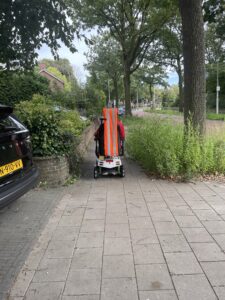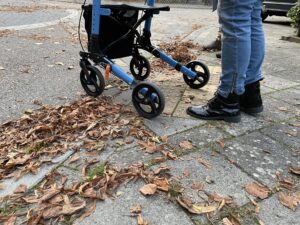Research: The safety of protected Intersections and their use case for Germany (2021-2024) Federal Highway Research Institute (BASt)
Mobycon provided research and analysis to inform revisions to public space accessibility guidelines for the City of Nijmegen. Nijmegen, renowned for its rich heritage and historic charm, is committed to preserving its beloved character while ensuring its inclusivity for all residents and visitors, regardless of how they move around. Mobycon’s multi-disciplinary approach combined research, better coordinating existing guidelines, and interviews with experts and daily users who navigate the city with mobility challenges. Mobycon identified 15 focus areas for improvement and determined suitable measures to improve accessibility. This project used a holistic approach by examining the interactions between the city’s multiple technical guidelines for traffic and public space and engaging with user experience experts in inclusive design.
By listening carefully and navigating the city with daily users facing mobility challenges, Mobycon gained a deeper understanding of the impact of (or the lack of) accessible paths and public spaces. The feedback and data were used to create GIS maps, that organize the municipality of Nijmegen into different neighborhood accessibility profiles. The profiles aid planners and decision makers, prioritizing the least accessible neighborhoods. The neighborhood profiles considered factors such as land use, infrastructure, access to public transportation, and accessibility for those with different vision, hearing, tactile perception, movement, and usage patterns. The accessibility tools, neighborhood profiles, and 15 focus areas offer Nijmegen a clear road map to build a more inclusive city while retaining the unique historic character and charms of its city center.



